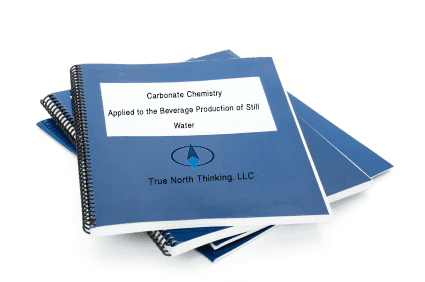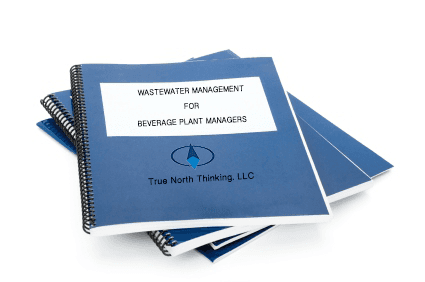Publications
Carbonate Chemistry
Applied to the Beverage Production of Still Water
Phillip L. Hayden, Ph.D., P.E.
The chemistry of the carbonate equilibrium, including carbon dioxide (CO2), directly affects the beverage production of still water, which has strict pH and alkalinity standards. CO2 (g) will pass through a Reverse Osmosis (RO) membrane, which is commonly used in still water production, and end up in the final water. Unless the CO2 is removed, adjusting the final pH to specifications will result in high alkalinity concentrations in excess of the specifications. The purpose of this paper is to define the carbonate chemistry, present various treatment options and the impact of CO2 (gas) on final still water quality.
Click Image to Download White Paper
Lean In Education: Work, Spirit and Moments of Truth
Carol M. Shaw
Professor Emeritus, University of Dayton
In the 30 years I have worked as a change agent, first working in the field of engineering education to change the enrollment patterns of women in engineering, and then as one of the early adopters helping introduce Lean to the United States as a new model of management and finally as a co-teacher with Professor Joseph Castellano, University of Dayton School of Business, as part of a MBA course entitled “The Principles of Deming and Lean and How Metrics Influence Management Outcomes”, sometimes in surprising ways. Because of being a student of Lean as well as establishing a certificate program in the area, I have learned a lot about how Lean management compares to traditional management methods and I thought I would describe those differences as I have discovered them.
Wastewater Management For Beverage Plant Managers
Phillip L. Hayden, Ph.D., P.E.
Inattention to plant water systems, especially wastewater, can potentially end up costing
a beverage plant up to $1,000,000 per year in fines, penalties and excess sewer
charges. Cost-saving water and wastewater management programs should be
implemented in all beverage plants.
A summary of key issues for plant managers are:
- Regulatory;
·
- Sewer Fees – BOD, TSS and Flow;
·
- Water Conservation and Waste Minimization Programs; and
·
- Payback of Water Management Systems;
Simple cost-effective corrective actions that can be taken by plants are:
- Collecting high BOD waste streams from BIB, 5 -gal, can crushers and syrup rooms;
·
- Implementing a water conservation program to reduce water consumption; and
·
- Diverting clean water streams to the storm sewer.
Click Image to Download White Paper




